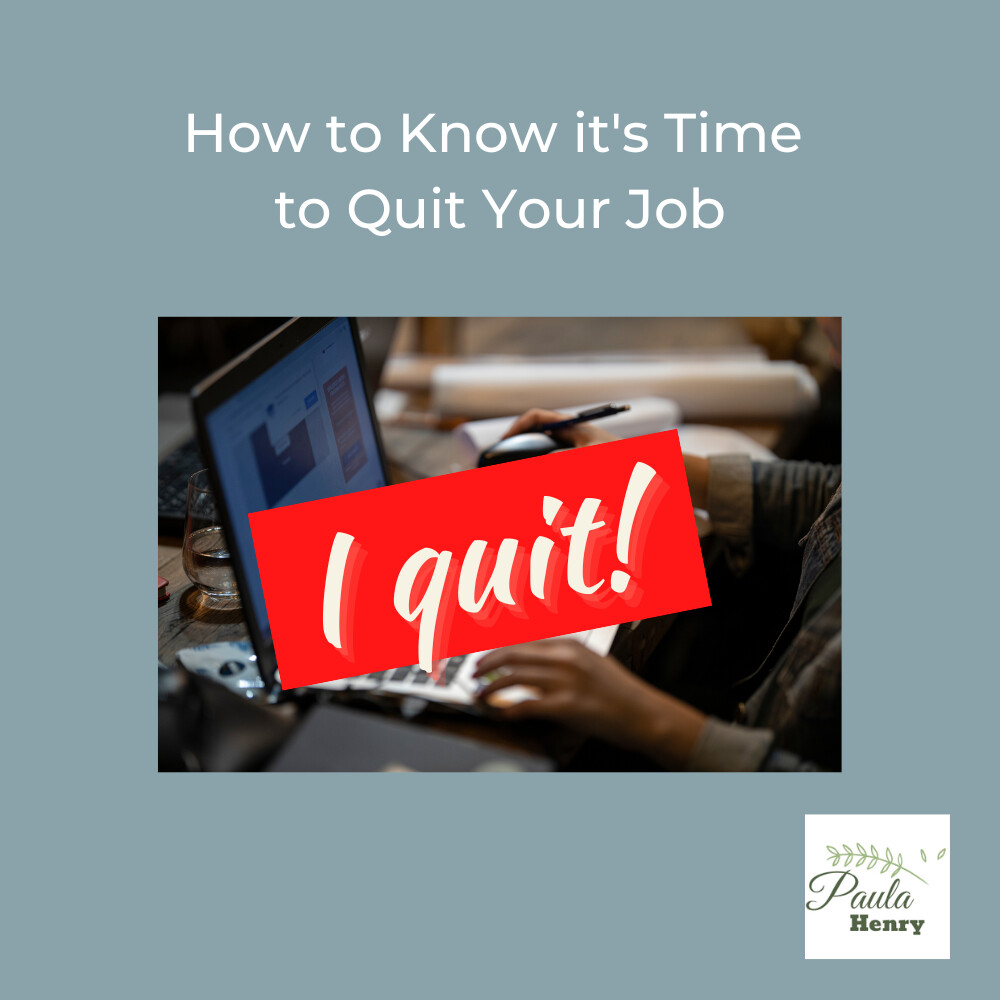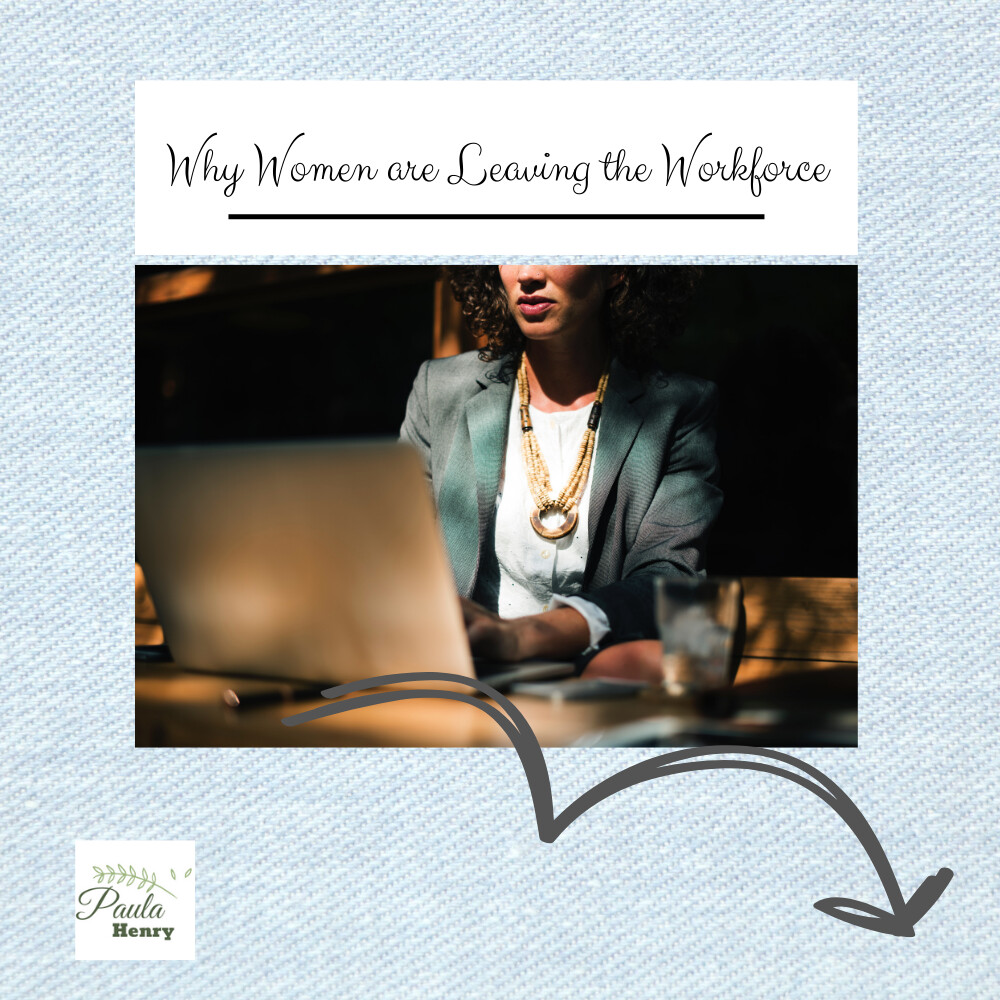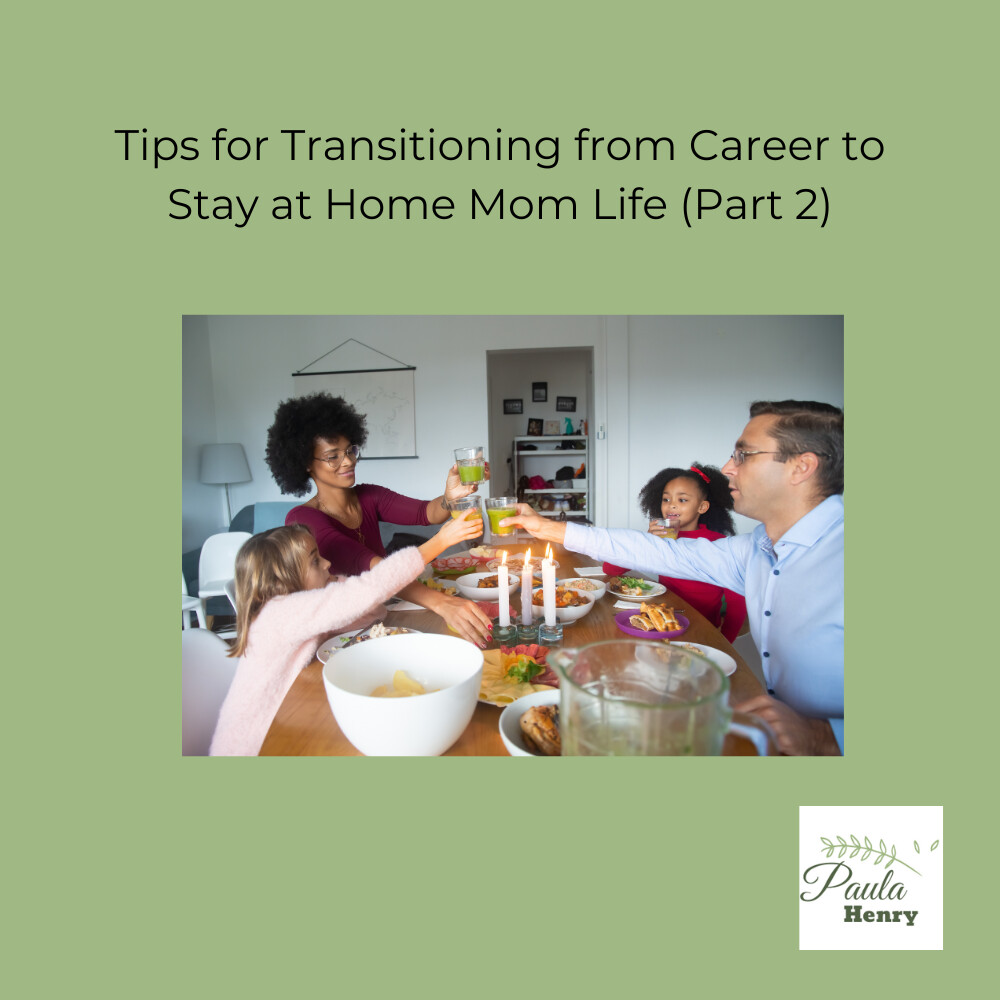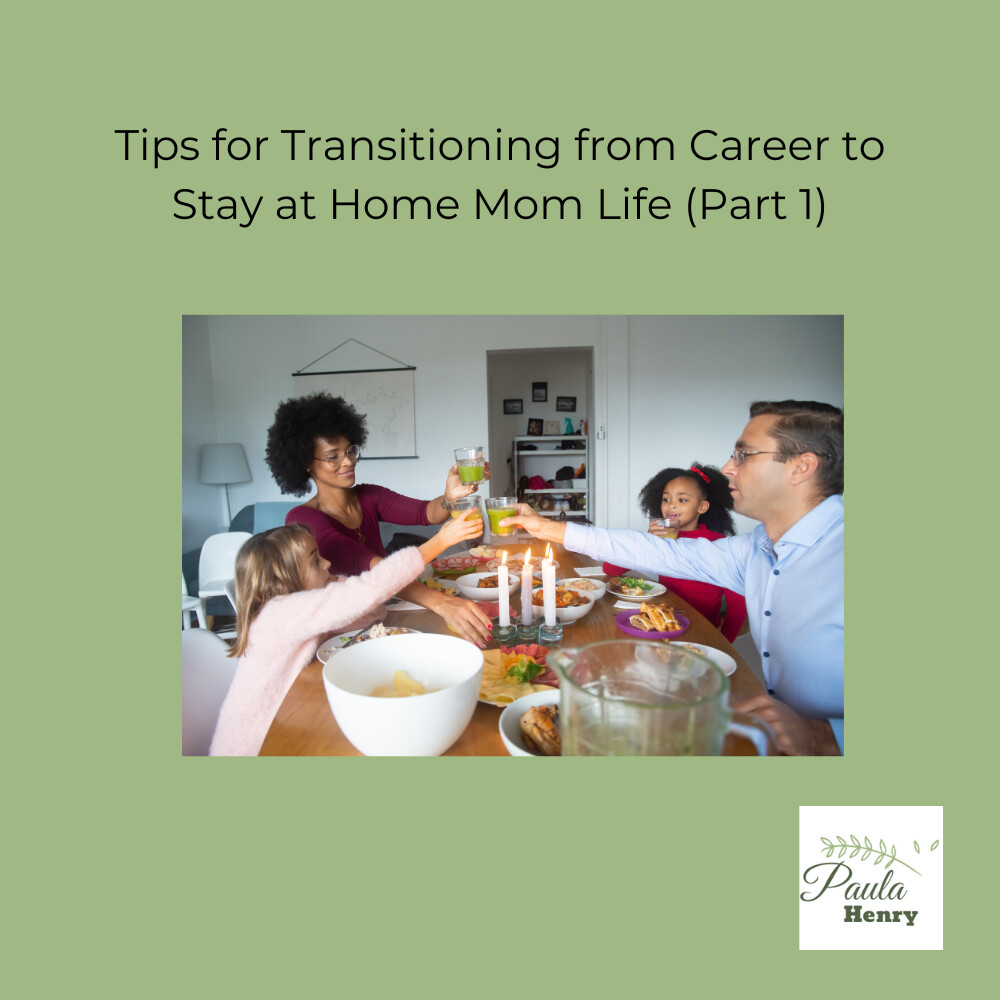
According to Pew Research Center, 69% of mothers with children under 18 are employed. Of those working mothers, 26% work full time and 42% work part time. So what happens when a mother wants to leave her career to stay at home with her kids? For many women, it's not as simple as just quitting their job. Here are five challenges they face (that have nothing to do with money).
1. Guilt
Whether we want to admit it or not, there is still a stigma around mothers who stay at home with their kids. Oftentimes, these women feel guilty for not working and contributing to their family's financial stability. They worry about what people will say or think about their decision to stay home. Will they be judged? Will they be seen as lazy? These are all valid concerns that can make the transition from working mother to stay-at-home mother very difficult.
2. Loneliness
Mothers who stay at home with their kids can often feel isolated and lonely. Since they're not working outside the home, they don't have the opportunity to interact with other adults on a daily basis. This can lead to feelings of isolation and loneliness that can be very difficult to deal with.
3. Boredom
Another challenge facing mothers who stay at home is boredom. When you're used to working 40+ hours per week, it can be hard to adjust to having all that free time at home with your kids. It's important to find activities that you enjoy and make the most of your time at home. Otherwise, you may start to feel like you're going stir-crazy!
4. Lack of Structure
Mothers who stay at home also have to deal with the lack of structure that comes along with leaving their career behind. When you're used to working 9-5 (or even longer), it can be tough to adjust to having a more flexible schedule. It's important to create a daily routine for yourself and your family so that everyone knows what to expect each day. Otherwise, things can quickly become chaotic.
5. Missing the Adult Conversation
Lastly, another common challenge faced by mothers who stay at home is missing the adult conversation. When you're surrounded by small children all day, it's easy to start feeling like you're losing your mind! Make sure to take some time each day (even if it's just 30 minutes) to talk to another adult about something other than diapers and toddlers. You'll be surprised how much better you'll feel afterward.
While there are many challenges that come along with leaving your career behind to stay at home with your kids, it's important to remember that it is a decision that should be made based on what's best for your family - not what other people think or say about it. If you're considering making the switch from working mother to stay-at-home mom, make sure you take the time to weigh all the pros and cons before making your final decision.

Are you thinking of quitting your job to become a stay at home mom? It's not an easy decision to make, but there are some signs that can help you decide if it's the right time for you. Stay at home moms have a lot of responsibilities, but they also get to enjoy the benefits of spending all day with their kids. If you're wondering if making the switch is right for you, read on to determine if it might be time to quit your job and become a stay at home mom.
1. Weigh the pros and cons of staying at your job. Which one has the more pros – your job or staying at home?
2. Consider whether you're happy or not with your current situation. Would leaving your career make you happier or is it your current employer that is unsatisfactory more than your career?
3. Evaluate whether you feel like you're able to balance work and family life successfully. There’s no shame in admitting to yourself and your spouse that the attempt at balancing is not working.
4. Ask yourself if you feel fulfilled by your job or if you're just doing it for the money. If it’s all about the money, determine how much money you need to live. If it’s about fulfillment, can you get that in other areas?
5. Talk to other mothers who have made the decision to stay at home and get their perspective. Definitely talk to those who have made the transition well and those who may have struggled. Get the real story, not the one viewed through rose-colored glasses.
6. Make a list of all the potential benefits of being a stay-at-home mom and then evaluate the list. Will it be enough for you?
So, what’s a mom to do? It’s not an easy question to answer. There are pros and cons to both staying at your job and quitting to stay home with the kids. The important thing is for you to weigh the options and make the decision that will make you happiest. If you decide that staying at your job is the best choice for you, great. But if you feel like quitting your job is the right decision for you, know that there are plenty of other moms out there who have made the same choice and are happy with it. No matter what you choose, remember that you’re not alone in this journey.

It’s a question that often comes up in conversations among professional women: is staying at home and taking care of your children work, or is work only defined as something that you get paid to do? The answer isn’t always straightforward, but let’s take a closer look at the concept of work and how it is (and could be) defined.
Defining Work by Society's Standards
By society’s standards, the definition of “work” tends to focus on what people are paid to do. If someone gets a paycheck for their efforts, then they are typically deemed to be engaged in “work.” This definition can be problematic, however, because it ignores those who are doing unpaid labor such as stay-at-home parents or caregivers.
On the other hand, there are some valid arguments for why society has chosen to define work in this way. For example, many countries use taxes on wages as a primary source of revenue, so defining work as something that is done for pay allows governments to collect taxes more easily. Additionally, if all forms of unpaid labor were considered “work,” it would be difficult to calculate unemployment rates accurately.
Defining Work by Your Own Standards
The good news is that you don’t have to accept society's definition of work—you can define it for yourself! If you consider staying at home and raising your children an important form of work (as many working mothers do), then go ahead and give yourself credit for it! You don't need anyone else's approval or validation—you know what you're doing and you should be proud of yourself for it.
At the end of the day, how you define work is entirely up to you. Whether you choose to view stay-at-home parenting as a form of work or not doesn't really matter—what matters is that you recognize the value and importance of whatever it is that you're doing with your time and energy. Don't let anyone else tell you how your time should be spent; take ownership over your life and make sure that whatever decisions you make are right for YOU!
If you've thought about leaving your career to stay at home with your kids, you're not alone.

There's an old saying that goes, "You can't have your cake and eat it too." But as moms, we know that's not true. We CAN have our cake and eat it too. We just have to be willing to set some goals first.
Let's face it, moms are dreamers. We dream of a day when our kids are potty trained, sleeping through the night, and eating their veggies without complaint. We dream of a day when we can actually finish a cup of coffee before it gets cold. We dream of a day when we might actually get to take a shower without interruption. But if we're being honest, those dreams often feel pretty darn unattainable.
That's where goals come in. Goals are the bridge between our dreams and reality. They give us a roadmap for how to get from Point A to Point B. And while they may not be as fun or sexy as dreams, they are infinitely more achievable. So if you're feeling like your dreams are just out of reach, it's time to start setting some goals. Here's how to tell the difference between a dream and a goal:
Dreams vs. Goals: The Difference
Dreams are lofty and often include the words "some day." For example, "Some day I will sleep through the night." Goals follow the SMART format (specific, measurable, attainable, relevant, timely) with a timeline and a specific, tangible, measurable outcome. For example, "I will sleep through the night by December 31st."
Dreams are vague and often feel unattainable. Goals are specific and actionable. Dreams inspire us but rarely lead to results. Goals motivate us and help us achieve the results we desire.
So why do moms need both? Because dreams help us see what's possible while goals give us the tools to make those dreams a reality. Dreams inspire us to be better versions of ourselves while goals provide the blueprint for how to get there. So go ahead and keep dreaming, moms. Just make sure you're setting some goals too!
Moms are dreamers but we can't forget to set some goals too! Dreams inspire us but they don't usually lead to results. Goals motivate us and help us achieve the results we desire. So keep dreaming, moms! Just make sure you're setting some goals along the way.

It's a conversation that I never thought I would have. I never thought that I would be the one who would be considering staying at home with the kids instead of continuing my career. But there I was, having this conversation with my husband. And I know that I'm not alone. There are plenty of professional women out there who have had to make this same decision. So, how do you know when it's time to leave your career behind and become a stay-at-home mom? Here are some things to consider.
The Pros of Staying at Home with the Kids
There are some definite advantages to staying at home with the kids. For one, you get to be there for all of the milestones and special moments in their lives. You don't have to miss a single thing. You also get to form a strong bond with your kids that you might not otherwise get if you were working outside of the home. And let's not forget about the cost savings. Childcare can be expensive, so staying at home can save you a lot of money in the long run.
The Cons of Staying at Home with the Kids
Of course, there are some drawbacks to staying at home with the kids as well. For one, you might feel like you're missing out on an important part of your life - your career. You might also feel like you're not contributing financially to the family. And let's not forget about the isolation. It can be tough being at home all day with no adult interaction.
How to Make the Decision
So, how do you make this important decision? It's definitely not an easy one. But there are some things that you can take into consideration that might help you make up your mind. First, think about what's important to you and what will make you happy. If staying at home with the kids is going to make you happier than continuing your career, then maybe that's the right decision for you. Second, think about your financial situation. If staying at home is going to put a strain on your family's finances, then maybe it's not the right choice for you right now. Lastly, think about your support system. If you have a strong network of family and friends who can help out when needed, then staying at home might be a good option for you.
Making the decision to stay at home with your kids is a tough one - there's no doubt about it. But if it's something that will make you happy and doesn't put undue financial strain on your family, then it might just be the right choice for you and your family.

Leaving your career to stay at home with your kids is a big decision. It's one that can be filled with endless amounts of happiness and satisfaction...or regret and frustration. Before you make the switch, here are a few things to consider from a financial perspective.
How much money do you need to live on each month?
This question can be a difficult one to answer. On the one hand, by staying at home, you will not be spending money on child care costs, which can be a significant expense for working mothers. On the other hand, stay at home moms often have a lot of other monthly expenses, such as groceries, gas, and entertainment. The amount of money that stay at home moms need to live on each month can vary widely depending on their individual circumstances. Track your expenses for a month and see where you spend money that you wouldn’t spend if you were not working.
What is your family’s estimated yearly income if you were to stay home with your kids full-time instead of working outside the home?
Take your spouses yearly income and see if there are any expenses currently being paid out of it that would go away if you were not working. Think about gas money, eating out at lunch (although you may still do that from time to time), dry cleaning for clothes, dress cloths and shoes, etc.
One way to test if you can manage on one income is to take your income and put it into savings and then use it only to pay those expenses related to you working (child care, gas, etc). Pay all other bills through your spouse’s income. Will it work? Trying it out before you make the final decision can help you see how realistic leaving your job can be from a financial perspective.
How will leaving your career impact your plans for retirement?
If you leave your career, you are likely to end up with less money saved since you won't been working. On the other hand, you may have more time to focus on how your savings and investments are doing. Ultimately, it will come down to a balancing act between saving and spending. Stay at home moms who are leaving their careers need to make sure that they have a solid plan in place for how they'll continue to save for retirement. They may also need to adjust their expectations for what their retirement will look like. but with careful planning, it is possible to make a successful transition into retirement regardless of how you've left your career.
Before you quit your job to stay at home with your kids, these are a few money issues you should consider. Although your yearly income may drop down to zero, that doesn't mean you're not worth anything! Stay at home moms are definitely worth their weight in gold.
If you’re feeling unsure about transitioning to stay at home mom life or just want some support in making this decision, join my group and let’s chat about it.

Becoming a mom is a life-changing event. It's a time when you learn to adjust to a new way of life, and suddenly everything is all about your little one. As your baby grows, you realize that there are more changes ahead and the time comes when you have to make some big decisions. One of those decisions is whether or not to stay in the workforce after becoming a mom. While there are many factors to consider, here are three reasons why moms may choose to leave their job.
1. The inability to find affordable, high-quality child care
For many working moms, finding affordable child care is a struggle. Daycare centers can be expensive, and finding a babysitter who is both reliable and affordable can be a challenge.
I’m sure I’m not alone in experiencing the sticker shock of full time childcare. I was thrilled when my kids aged out of full time care, but even after care during the school year and camps or other care during the summer gave me heart palpitations.
2. The challenge of juggling work and family responsibilities
It can be a constant struggle to find a balance between the demands of your job and the demands of your home life. And it doesn't help that society often expects working mothers to do it all. We are expected to be perfect employees and perfect parents, without ever missing a beat. But the reality is that working mothers are often just trying to do their best. We are working hard to provide for our families and to build successful careers. We are juggling a lot of balls, and sometimes we drop one or two. But overall, we are managing to keep all of the balls in the air. And that is an accomplishment in itself.
3. The lack of workplace flexibility and support
Working mothers are more likely to feel stressed than working fathers. And it's no wonder why. In addition to managing their own workloads, working moms also have to juggle the demands of family life. This can often mean working late into the night or getting up early to squeeze in a few hours of work before the kids wake up. What's more, working mothers often feel like they have to do it all themselves. Not only are they expected to be the primary caretakers of their children, but they're also expected to maintain a clean house and cook dinner every night. It's no wonder so many working mothers end up feeling overwhelmed and stressed out.
So there you have it. I left my career to be at home with my kids, and while it’s been a challenge, it’s also been incredibly rewarding. If you’re in a similar situation and are looking for support, please join my group on Facebook here. We offer advice and support to each other as we navigate this tricky but important stage of our lives. Thanks for listening!







